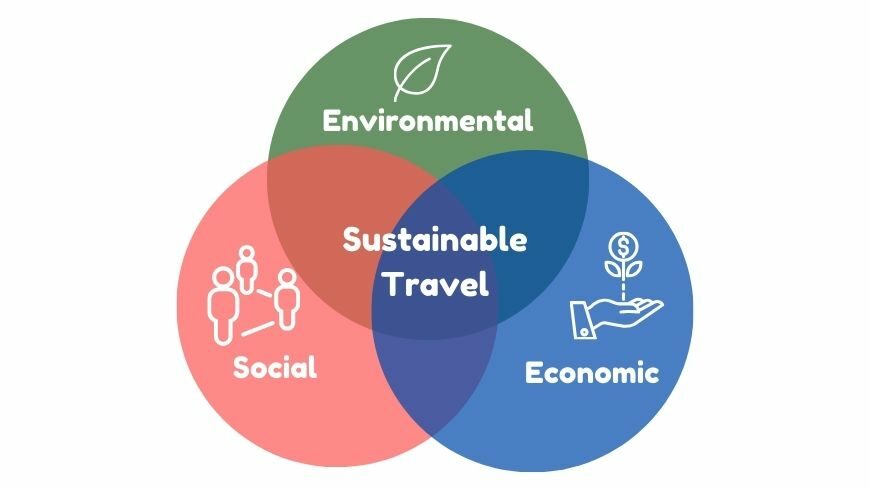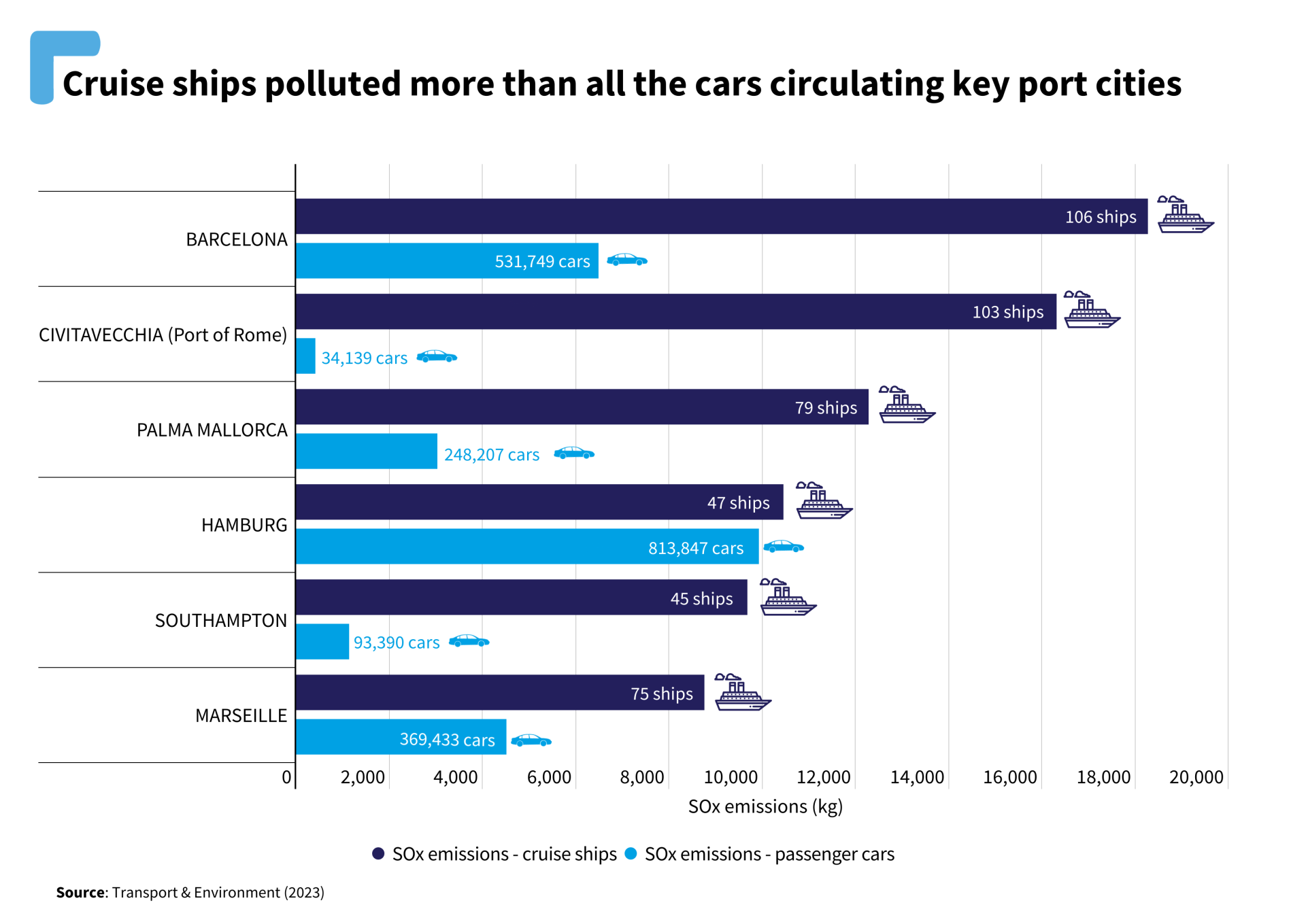In today’s world, the concept of sustainable travel has gained significant traction. Travellers are becoming increasingly conscious of their impact on the environment and are seeking ways to explore the globe while minimising their carbon footprint. Sustainable travel involves making responsible choices that positively affect the environment and local communities. This article aims to explore the significance of sustainable travel, its impact on air pollution, and provide practical tips for minimising your carbon footprint while exploring the globe.
Understanding Sustainable Travel
Sustainable travel, also known as ecotourism, involves making environmentally friendly choices that promote the conservation of natural resources, support local communities, and minimise negative impacts on the environment. It encompasses a wide range of practices, including reducing carbon emissions, conserving water and energy, supporting local businesses, and respecting the local culture and wildlife. Sustainable travel encourages travellers to be mindful of their ecological and social footprint and to make conscious decisions that contribute to the preservation of the destinations they visit.
Travellers can engage in sustainable travel by choosing eco-friendly accommodations, supporting local initiatives, and participating in responsible tourism activities. By adopting sustainable travel practices, travellers can help protect the planet’s natural and cultural diversity, while also enhancing their travel experiences. Sustainable travel is not only about minimising the negative impact of tourism but also about creating positive change and leaving a lasting, meaningful impression on the places visited.

Sustainable travel is a holistic approach that considers the environmental, social, and economic aspects of travel. It promotes the idea of responsible exploration and encourages travellers to be mindful of their choices and their impact on the destinations they visit. By understanding the principles of sustainable travel, individuals can make informed decisions that contribute to the conservation of the environment and the well-being of local communities.
The Impact of Air Pollution on Travel

Air pollution is a significant concern in the travel industry, particularly due to the high emissions generated by various modes of transportation. The burning of fossil fuels in cars, planes, and ships releases harmful pollutants such as carbon dioxide, nitrogen oxides, and particulate matter into the atmosphere, contributing to global warming and air quality deterioration. The carbon footprint of travel is further amplified by the energy-intensive infrastructure and operations of hotels, resorts, and tourist attractions. Click here to find out more.

The consequences of air pollution on travel are far-reaching, affecting not only the environment but also human health and the well-being of local communities. Polluted air can lead to respiratory problems, cardiovascular diseases, and other health issues, impacting both residents and tourists in popular travel destinations. Additionally, air pollution can harm ecosystems, degrade natural landscapes, and contribute to climate change, ultimately threatening the very attractions that draw travellers to these destinations.
Addressing the impact of air pollution on travel requires a concerted effort to reduce carbon emissions and promote sustainable practices across the travel industry. By acknowledging the connection between travel and air pollution, travellers can take proactive steps to minimise their environmental impact and contribute to the preservation of the destinations they visit.
The Importance of Sustainable Travel
The importance of sustainable travel cannot be overstated in today’s global context. As the tourism industry continues to expand, the need for sustainable practices becomes increasingly urgent. Sustainable travel not only benefits the environment but also contributes to the preservation of cultural heritage, the empowerment of local communities, and the overall well-being of destinations.
By prioritising sustainable travel, travellers have the opportunity to support conservation efforts, reduce their ecological footprint, and contribute to the economic development of local communities. Sustainable travel also fosters a deeper connection between travellers and the places they visit, allowing for more meaningful and authentic experiences. Furthermore, the promotion of sustainable travel can lead to the adoption of eco-friendly practices by businesses and governments, ultimately shaping a more sustainable future for the travel industry.

The importance of sustainable travel extends beyond individual actions and resonates with the broader goal of global sustainability. By embracing sustainable travel practices, individuals can play a significant role in preserving the planet’s natural and cultural diversity and ensuring that future generations can continue to enjoy the beauty and richness of the world’s destinations.
Tips for Minimising Your Carbon Footprint While Travelling
Travellers have the power to make a positive impact on the environment by adopting sustainable practices during their journeys. Here are some practical tips for minimising your carbon footprint while exploring the globe:
Sustainable Transportation Options
- Choose eco-friendly modes of transportation, such as trains or buses, whenever possible.
- Consider walking or cycling for short distances to reduce reliance on motorised vehicles.
- Prefer the train to the plane. If really necessary, opt for direct flights and non-stop routes to minimise fuel consumption and emissions.

Eco-Friendly Accommodation Choices
- Select accommodations that have implemented sustainable practices, such as energy-efficient lighting and water conservation measures.
- Support eco-lodges, hotels, and resorts that are committed to environmental sustainability and community engagement.
- Conserve energy and water during your stay by reusing towels, turning off lights and electronics when not in use, and minimising air conditioning usage.

By incorporating these tips into their travel plans, individuals can significantly reduce their carbon footprint and contribute to the promotion of sustainable travel practices.
Conclusion
In conclusion, sustainable travel is a vital undertaking that encompasses responsible choices, environmental stewardship, and the preservation of cultural heritage. By understanding the impact of air pollution on travel and embracing the importance of sustainable practices, travellers can make a positive difference in the world. Through eco-friendly transportation options, such as trains and buses, and the selection of accommodations that prioritise sustainability, travellers can minimise their carbon footprint while exploring the globe. By taking proactive steps to support sustainable travel, individuals can contribute to the conservation of the environment, the well-being of local communities, and the long-term sustainability of travel destinations.




